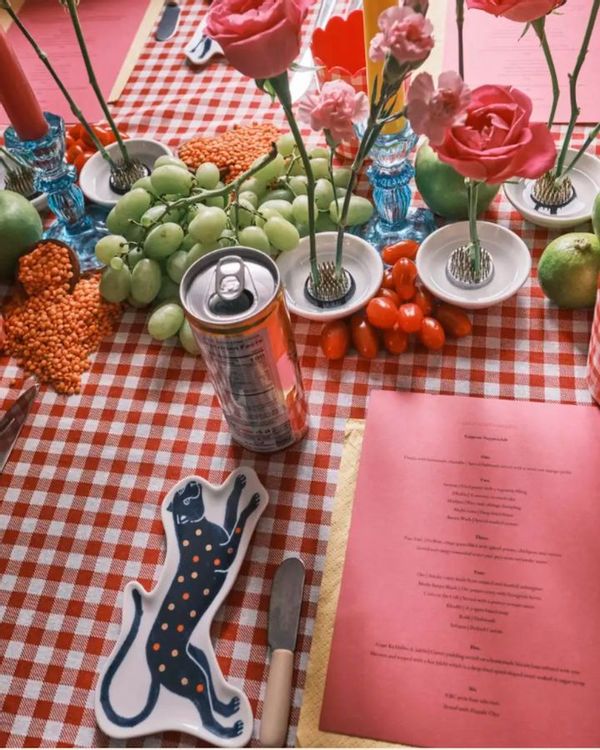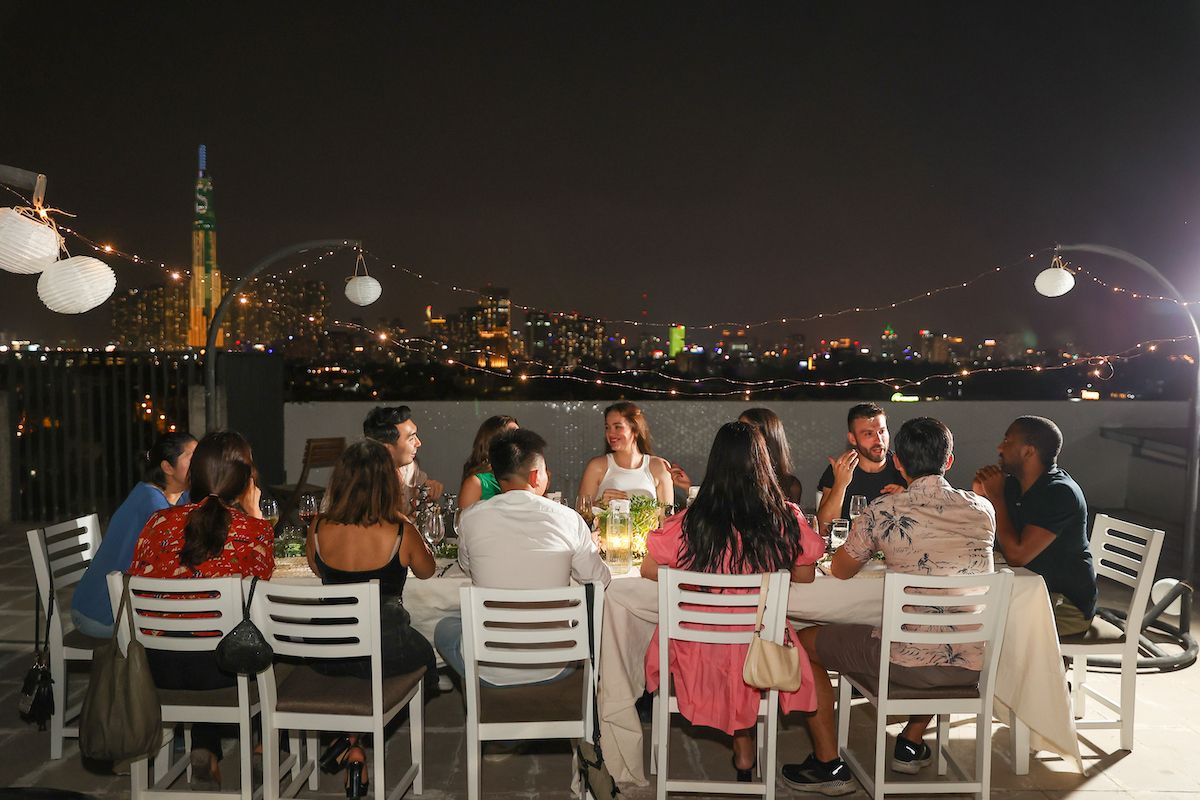Researchers, doctors and even Netflix have told us we’re lonelier than ever. Some claim it’s the latest epidemic plaguing society, but instead of masks and distancing, people are combating this one in a very different way. Post-pandemic, there’s been a surge in supper clubs around the world.
These intimate, exclusive dining experiences give people a chance to meet and bond with locals, travelers and chefs. The goal? Connecting and hopefully forming friendships over top-notch local food and drinks.
Popular in the United States during the 1930s and 40s — coincidentally, after the country’s 1920 Spanish Flu epidemic — in reality, post-Prohibition sparked these social clubs where people came to eat, drink and let their hair down.
London is arguably the supper club scene's hotspot and has been for years. Supperclub.tube is one of the capital’s most quirky. Here, hungry commuters can gather inside a decommissioned 1960s tube train for a six-course Latin American menu made using local British ingredients.
At Vegetarian Brown Girls in north London, the mother-daughter duo serves home-cooked Gujarati food known to make diners' eyes well with memories. “For us, it’s about creating an experience where you feel part of our story, where every dish feels like you can start a conversation, while every bite brings you closer to home,” says Priya Bowry, co-founder and co-host of Vegetarian Brown Girls. “It’s where tradition meets cool, where food connects us all, and where the vibes are always just right.”
 The tablescape at a Vegetarian Brown Girls supper club event (Vegetarian Brown Girls )In Ho Chi Minh City, Vietnam, food blogger Jovel Chan started Saigon Supperclub as a way to bring her online food community into the real world. “My first supper club kicked off on the rooftop of my own apartment with friends and followers featuring a local craft apricot liqueur. Since then, we’ve hosted nearly 30 dinners across Ho Chi Minh City—in farmhouses, wine cellars, and hidden venues—spotlighting Vietnam’s culinary side alongside local tastemakers and craft brands,” says Chan.
The tablescape at a Vegetarian Brown Girls supper club event (Vegetarian Brown Girls )In Ho Chi Minh City, Vietnam, food blogger Jovel Chan started Saigon Supperclub as a way to bring her online food community into the real world. “My first supper club kicked off on the rooftop of my own apartment with friends and followers featuring a local craft apricot liqueur. Since then, we’ve hosted nearly 30 dinners across Ho Chi Minh City—in farmhouses, wine cellars, and hidden venues—spotlighting Vietnam’s culinary side alongside local tastemakers and craft brands,” says Chan.
We need your help to stay independent
Saigon Supperclub seats people based on a questionnaire filled out pre-dinner. “I reckon in a world of constant movement, remote work and digital overload, supper clubs offer something refreshing change—a way to meet new people beyond hostel bars and tourist traps, whether you’re traveling or just looking for good conversation over a great meal,” she says.
One of the United States’ most beloved supper clubs is Mosquito Supper Club in New Orleans. This award-winning restaurant has been one of the toughest tickets in town since it opened in 2014. Sitting across from strangers sharing a plate of Louisiana crab cakes is a tourist hack to getting the best New Orleans recommendations from locals who come back over and over for chef Melissa Martin’s family recipes (I can personally attest to this).
“Mosquito offers a glimpse into what dining on the Bayou looks like. We serve "grandma cuisine" in a laid-back environment so that our guests feel as though they are stepping into our home,” says General Manager Emily Pilkington. “The food is as traditional as you can find without driving down to Chauvin, Louisiana, where Melissa grew up, with a hint of fine dining.”
Down under in Melbourne, Australia, Club Sup was born out of the city’s strict and lengthy COVID-19 lockdowns. Hosted in art galleries and artists’ apartments, it has morphed into something much bigger, with hundreds of events across Australia, and includes things like a Lunch Club and Book Swap. The original dinner in Melbourne still meets once a month at Cam’s Kiosk, a beloved neighborhood go-to for wine and a two-course dinner.
At a BYOB dining room in Bangkok, chef Dylan Eitharong cooks a wacky family-style Thai meal at the perennially busy HAAWM, a play off the word “home” and the Thai word meaning fragrant. It’s a fitting name, given its ever-changing array of punchy plates from Penang curry with salted beef and candlenut to grilled salted beef served with “daddy’s special sauce.”
“HAAWM offers a dining experience in Thailand where people can taste delicious and refined food without the pretentiousness of Michelin restaurants. It offers travelers a place and way to meet new people over a family-style meal,” says Eitharong. “Overall, I think supper clubs are a unique experience because diners get to not only connect with other diners on a personal level but the chef as well.”



Shares